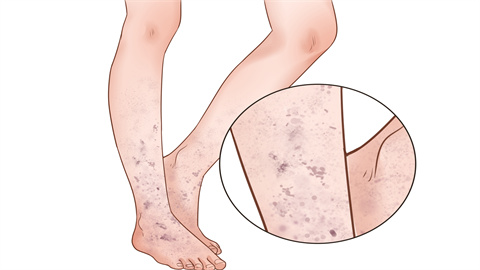How to treat telangiectasia and broken capillaries
Generally, capillary dilation and redness (telangiectasia) may be caused by long-term sun exposure, frequent temperature changes, severe damage to the skin barrier, hormonal fluctuations, rosacea, and other factors. It is recommended to seek timely medical attention, identify the underlying cause, and improve the condition under a doctor's guidance through general care or medication. A detailed analysis is as follows:

1. Long-term sun exposure: Ultraviolet radiation damages the skin barrier, reducing the elasticity of capillaries and causing them to dilate and appear as redness. When going outdoors, apply sunscreen with SPF 30+ and PA+++ or higher, wear a sun hat, and use an umbrella for shade. Use skincare products containing vitamin C and niacinamide to help repair the skin barrier, strengthen capillary resilience, and reduce redness.
2. Frequent temperature changes: Repeated exposure to alternating cold and heat causes capillaries to constrict and dilate repeatedly, gradually losing elasticity and becoming permanently dilated. Avoid sudden exposure to excessively cold or hot environments, wash the face with lukewarm water at 32–38°C; keep the face warm in winter and avoid prolonged exposure to cold air in summer, minimizing capillary stimulation to prevent worsening of redness.
3. Severe skin barrier damage: Over-exfoliation and the use of irritating skincare products can damage the skin barrier, exposing and dilating capillaries. Discontinue the use of irritating products and choose gentle, repairing skincare products.
4. Hormonal fluctuations: Hormonal changes during pregnancy or from oral contraceptives can cause capillary dilation. During pregnancy, no special treatment is usually required, and the condition may gradually improve postpartum; drug-induced cases can adjust medication under a doctor's guidance when necessary, and topical medications such as mucopolysaccharide polysulfate cream, compound heparin sodium allantoin gel, or escin cream may be used to promote capillary repair and reduce redness.
5. Rosacea: Skin inflammation causes persistent capillary dilation, accompanied by facial redness and pimples. Patients should follow medical advice to use metronidazole gel, azelaic acid cream, tretinoin gel, and other medications to reduce inflammation, kill bacteria, and repair the skin.
In daily life, avoid frequent exfoliation and ensure thorough skin cleansing after makeup use. Maintain a regular sleep schedule and avoid staying up late to promote skin metabolism. Follow a light diet and consume more fresh fruits and vegetables rich in vitamins to provide nutrients for skin repair, assisting in improving the issue of redness.





